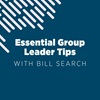For three years now I have been an avid fan of the reality show "Survivor" on CBS. I look forward each season to watching 16 potential survivors outwit, outplay and outlast each other in their 39-day adventure. My favorite of the four so far was surviving in the Outback. I enjoy the dual challenge of human relationships along with the quest for food, water and shelter. I like it so much that I have applied to be on the show. I enjoy experiencing adventures that challenge me physically, mentally and socially. My confidence to take on this challenge is so strong that I just know I could win. Relationships & team building is what I do, plus "country boys can survive" as Hank Williams Jr. sings. However, as of yet the phone has not rung, but I wait with anticipation that the invitation will come.
And yet another invitation beckons me daily, to be a "soul survivor." What is "soul survivor?" A challenge that tests my spiritual fervor and stamina? Or one that challenges me to get "in touch" with my soul, to live at a more intimate level with God and others? What would that challenge look like? And would I survive? As a small group leader, I am expected to "survive" the care of the souls of those I lead. In fact that is what many of us who lead small groups do. We help save, convert, and disciple the souls of others. But what about our own souls? As leaders (I know from personal experience) we constantly battle the challenge of living a balanced life of "doing" and "being." We are doers. We get things done, period. Yet in many of our churches, we are ok with that. No one asks about the soul of the leader. We are comfortable with Bible study, ministry to others, and the mission of the church to "save souls." But once souls are saved, they are to be left alone. Soulcare is too mystical, too touchy feely. We survive the soulcare challenge for others, but end up failing at our own "Soulcare Survival."
Mike Yanconcelli (founder of Youth Specialties) recently wrote, " I knew what it meant to believe in Jesus, I didn't know what it meant to be with Jesus. I knew how to talk with Jesus; I didn't know how to sit still long enough to let Jesus talk to me. I found it easy to do the work of God, but I had no idea how to let God work in me. I understood soul saving, I was clueless about soul making. I knew how to be busy, but I didn't know how to be still. I felt comfortable with God's people, I felt uncomfortable alone with God. I could meet God anywhere … except in my heart, in my soul, in my being."
In my own adventure to help others experience soulcare in their small groups, I ignored my own need for soulcare. I was driven by the external pressures of "ministry success," but was blind to my internal need. I was experiencing soul-less ness while providing "soulcare" for others. And yet how could I really help them survive this "soul challenge" if I was not fully engaged personally? The truth is I do not think we can. Everywhere I go to consult with churches I sense and hear the souls of leaders crying out to experience this deep spiritual connection we seem to be missing today.
Larry Crabb in "The Safest Place on Earth" challenges us to make soulcare a greater priority in our small group experiences. John Eldridge reveals to us in "Wild at Heart" his belief that we have lost our heart and have a desperate need to find our souls. He is not saying we have lost our salvation but our connection with our soul in relation to God and people. Think about it. How many people in your groups, leaders included, are really experiencing authentic community. Is their group a safe place where someone can struggle with any issue in the context of Christian community and still be loved and accepted, NO MATTER WHAT? How vulnerable are they with one another about where they are in their journey as a Christ follower? Do they feel safe with you, with someone?
If your groups are experiencing this, that is great. I contend that the majority of groups and its leaders do not live at this level. We live in a superficial community that studies the Bible, volunteers at the rescue mission but does not do real soulcare with one another. Do you have someone who knows EVERYTHING about you (your most intimate and deepest secrets, past or present sins, etc.) and still loves and accepts you? Or are there walls of fear that keep you from engaging at this level.
I am convinced we must turn this around in our leadership teams, our small groups and churches. We must do a better job at helping leaders be a "Soulcare Survivor." A book that has taught me a great deal about how to live in true authentic community and facilitate soulcare for leaders is "The Ascent of a Leader" by Bruce MicNicol & Bill Thrall. I challenge every leadership team to study this book together. There is even a clinic a staff member can attend to be mentored by Leadership Catalyst to champion this process with your leaders (www.leadershipcatalyst.org).
There is not enough time or space here to fully explain what is involved in creating this kind of "soulcare" culture in our leadership teams, groups and churches. I will share just one part of this journey. It involves Love. Love is the process of meeting soulcare needs. God created each of us with soulcare needs that can only be met by love. It flows like this:
I must acknowledge that I have soulcare needs.
You desire to meet one of my soulcare needs with an expression of your love.
I must choose to let you meet my soulcare need.
When my soulcare need is met, I am fulfilled.
My fulfillment enables me to love you and others.
Together we experience authentic community.
In the last three years I have embraced such a culture in my own life. I had to stop trying to prove I was loved by God and others with all of my "service." I now do life with a group of men (and my wife and I with a group of couples) that provide a soulcare connection with God and each other like we have never known before. These people are so close to us they know everything about us and they still love and accept us. Go figure. We are "Soulcare Survivors" because we have a group that is absolutely gut honest with one another thereby creating an atmosphere where all of us can connect at a soulcare level with God and each other.
My challenge to you is to live as a "Soulcare Survivor." Make this happen for the people you lead AND yourself. Get balanced between "being and doing." Find a group of men, women, or couples and submit your soul to their care. Make yourself vulnerable to them. Develop relationships of authentic trust. Outwit, outplay, and outlast the evil one who does not want you to be a "Soulcare Survivor." Survivors ready? Be!









